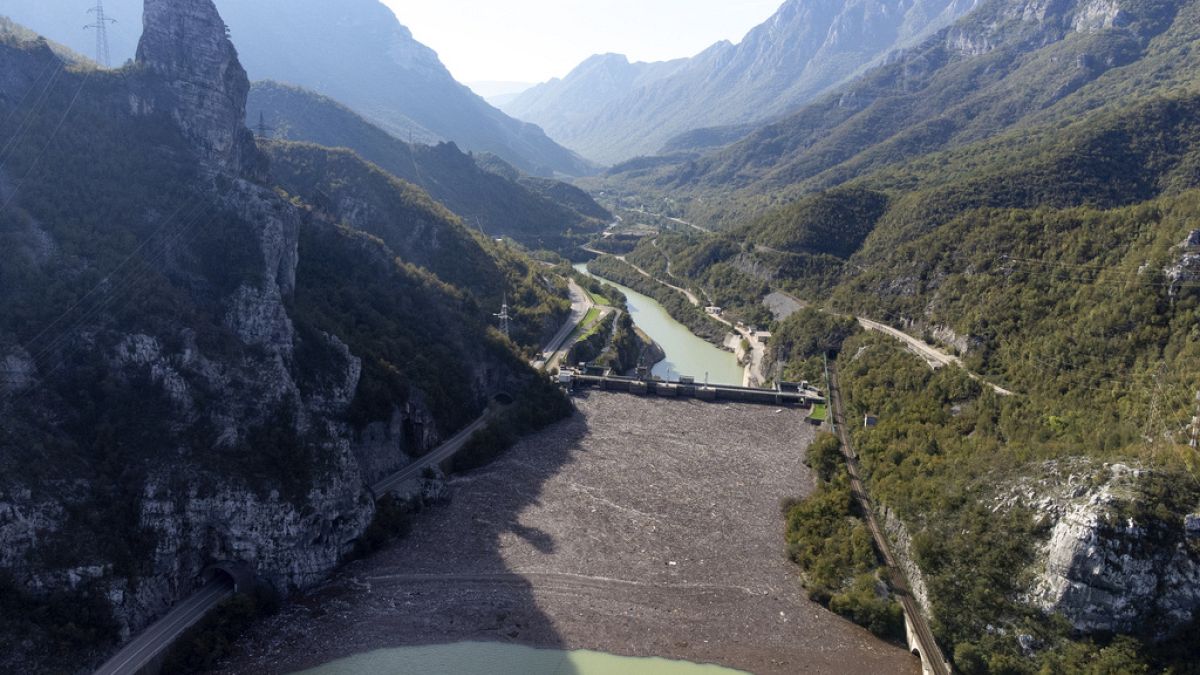A devastating storm hit Bosnia 10 days ago, causing multiple deaths and widespread destruction in the central and southern parts of the country. As a result of the floods and landslides, the death toll has reached 26 people, with rescue teams still searching for at least one missing person. Torrential rains and winds affected four municipalities, destroying houses, roads, and cutting off power infrastructure to several villages. In the southern village of Jablanica, 19 people were killed when a barrage of rocks from a quarry on a hill above buried the area. A collective funeral for the victims is scheduled for Tuesday, with over a thousand people from nearby towns and cities joining in the search for survivors and cleanup efforts.
Residents of Jablanica described being woken up in the middle of the night by a thundering rumble as flood waters swept away their property. Debris from the flooding has also impacted the famous Neretva River, usually a popular tourist destination. The river has been clogged with waste leftover from the floods, causing concern for the environment and local tourism. The extreme temperatures experienced in Bosnia this summer have added to the devastation caused by the recent storm. The country faced three heatwaves, disrupting the electrical supply and threatening the agricultural industry. With almost no rain for the entire summer and daily temperatures soaring between 35C and 40C in June, July, and August, scientists believe that the drought from the extreme heat has made it harder for floodwaters to be absorbed, intensifying the damage caused by the flooding.
The situation in Bosnia is dire, with rescue teams still searching for missing persons and communities coming together to support those affected by the storm. The government and humanitarian organizations are working to provide assistance to those impacted and help rebuild infrastructure damaged by the floods. As the cleanup efforts continue, there is a collective effort to restore normalcy to the affected areas and ensure the safety and well-being of residents. The tragic events in Bosnia serve as a reminder of the devastating impact that natural disasters can have on communities, highlighting the need for preparedness and resilience in the face of such crises.
In response to the recent storm and floods, Bosnia has received support from neighboring countries and international organizations, which are contributing aid and resources to assist with the recovery efforts. The collective response to the disaster demonstrates the importance of solidarity and cooperation in times of crisis, emphasizing the need for global collaboration to address the challenges posed by climate change and extreme weather events. The resilience and determination of the Bosnian people during this difficult time are evident as they work together to overcome the obstacles created by the storm and floods. Despite the devastation, there is hope for the future as communities come together to rebuild and recover from the impact of the disaster.
As Bosnia grapples with the aftermath of the storm and floods, there is a sense of unity and strength emerging among its people, who are coming together to support one another and rebuild their communities. The solidarity and resilience displayed by the Bosnian population in the face of adversity serve as a testament to the human spirit and the capacity for individuals to come together in times of need. As the recovery efforts continue and the country works to rebuild what was lost, the lessons learned from this disaster will be invaluable in preparing for and responding to future emergencies. With a renewed sense of determination and unity, Bosnia is moving forward from this tragedy, stronger and more resilient than before.









